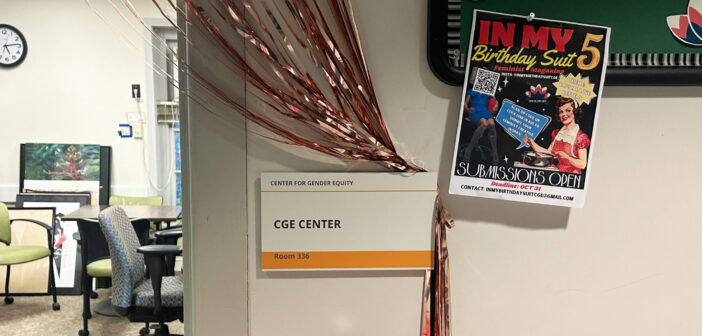In an effort to better understand menstrual equity at Lehigh, the Center for Gender Equity compiled a survey, which is now closed, for the campus community to complete.
The center is working with the Office of Sustainability, Health and Wellness Prevention Strategies and the Health and Wellness Center on the project.
Carly Dickerson, associate director for the Center of Gender Equity, said the survey promotes the sustainability and accessibility of menstrual products on campus.
“From a sustainability angle, we want to see what people’s attitudes are about using sustainable products (by asking) ‘How do students feel about others using these sustainable products?’” Dickerson said.
Dickerson said the purpose of the survey is to get multiple perspectives.
She said the center wants to hear from everyone — those who menstruate and those who don’t — to gauge the general campus climate of menstruation.
“That means we want men, non-binary people and older individuals to take the survey,” Dickerson said.
Rita Jones, director of the Center for Gender Equity, said conversations surrounding sustainable period products have increased over the past few years.
She said these conversations were mainly fueled by the annual Spot Me Program, previously known as Campus Cup, which is organized by the Center for Gender Equity and the Office of Sustainability.
According to the program’s website, the Center for Gender Equity and the Office of Sustainability offer free menstrual cups, discs and period underwear to interested students during Campus Race to Zero Waste — an 8-week national waste diversion and recycling competition against colleges and universities aimed to promote waste reduction in campus communities.
Jones said she noticed this was many students’ first time using sustainable menstrual products, and was interested in discovering the barriers that preventing students from using them.
She said the two main barriers students said have prevented them from making the switch are the lack of understanding of how to use the product and its cost.
“For example, when individual students come in and say that they are unable to afford menstrual products, that’s awful and sad,” Jones said “Is that an anomaly, or does that apply to a larger segment of students?’”
She said as time has gone on, more students have started to request these products.
Margaret Renneisen, a physician at the Health and Wellness Center, said she was approached by Jones shortly after starting at Lehigh. Since Jones was aware of Renneisen’s interest in women’s health, she invited her to participate in the initiative.
Renneisen said she anticipated the concern of sanitation to be reflected in the survey responses as reusable menstrual products need to be rinsed during use.
“There is a hesitancy for people to use sustainable products because of how you have to clean them when you are out in public, and they are concerned about if it’s sanitary to do so,” Renneisen said.
She also said there’s a need for more immersive education for individuals on how to encourage the use of sustainable menstrual products.
Renneisen said these products are helpful with managing the impact menstruating can have on an individual’s day-to-day life, reducing environmental impacts including navigating personal financial struggles, as it’s “not all about better lifestyle.”
Jones said another issue highlighted in the survey is that menstrual products aren’t currently available in residence halls, while all academic and library buildings have disposable pads and tampons in the bathrooms.
Scarlett Thomas, ’27, visited the Center for Gender Equity’s table on campus when they were giving out sustainable period products and encouraging students to fill out the survey.
She said while she hasn’t personally faced issues obtaining menstrual products on campus, she agrees that students can be hesitant to completely switch to more sustainable options.
“It is more convenient to use disposable products, (and) more daunting to deal with sustainable menstrual products,” Thomas said.
Dickerson said the Center for Gender Equity hopes to use the survey to determine how sustainable products can be implemented in residence hall bathrooms.
“You can always get more sustainable disposable products, for example, tampons without applicators, or just buying from a company that ethically sourced materials,” Dickerson said.
After evaluating the data from the survey, Dickerson said, the center hopes to implement these products on a broader scale.






Comment policy
Comments posted to The Brown and White website are reviewed by a moderator before being approved. Incendiary speech or harassing language, including comments targeted at individuals, may be deemed unacceptable and not published. Spam and other soliciting will also be declined.
The Brown and White also reserves the right to not publish entirely anonymous comments.